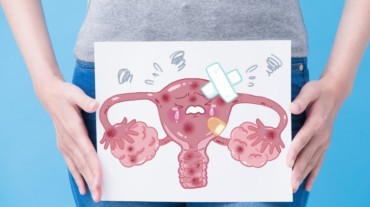
Sex can be painful, if you have endometriosis. However, this does not mean you have to stop yourself from being intimate with your partner. You just need to make a few changes to the way you approach sex. There are strategies for minimising or even removing discomfort.
Approximately two-thirds of women with endometriosis have a sexual issue. Of course, each woman is unique. Some of them claim they don’t have dyspareunia or discomfort during intercourse. Others experience pain both throughout and after sex. The discomfort can last for hours or even days after sex.
Younger girls, too, define their discomfort in various ways. Mild pain to sharp, stabbing pain to deep, aching pain are some of the common responses. Some people believe that any penetration hurts, while others believe that only deep penetration causes pain.
Endometriosis can develop in various locations around your uterus, fallopian tubes, and the back of your vaginal canal, which is why people describe and feel pain differently.

If the endometriosis is behind your vagina in the lower uterus, sex can be particularly painful. Endometriosis may also cause the vagina to stick to the rectum. Penetration can cause pain by pulling or stretching the irritated tissue.
If the endometriosis is located elsewhere on your body, such as on your ovaries, you can experience no or minimal pain during intercourse. And if endometriosis is present in several locations, sex can be painful regardless.
Endometriosis is a condition that affects sexuality in general, not just intercourse. Sex is supposed to be about two people emotionally loving each other. You can’t have a nice time if sex causes pain. This would most likely reduce your appetite for sex. Some women attribute their loss of sex drive to endometriosis. Because of endometriosis, some couples claim to have less sexual intimacy; this can lead to conflict and strife in a relationship.
Some male partners may be hesitant to have sex. They may also have difficulty obtaining or maintaining an erection. Assist your partner in realising that you might be avoiding sex because of your illness, not because of them.
Make eye contact with your partner: Sexual behaviour is a very private matter. Although it might be difficult to discuss it with your partner, the discomfort is likely to be mild compared to the pain you’ll continue to endure if you don’t speak up. Discussing dyspareunia with your partner will help them understand your condition a little better. To make things easier: set aside some time for you and your partner to speak, without being interrupted.

Offer an explanation of endometriosis: If you’re looking for a quick description, try this: It occurs when tissue that develops normally within my uterus grows outside of it. This irritates the organs around it, and it hurts me.
Select Topics of your interest and let us customize your feed.
PERSONALISE NOWIf you’re at ease, tell them how you’re feeling physically and mentally, as a result of the condition.
Play around with different positions: Some women claim that every sex position is painful, while others claim that only certain positions are painful. Finding one with shallow penetration or power over depth, such as a side-by-side spoon position with penetration from behind, may be beneficial.
Take a look at other types of enjoyment: Of course, intercourse isn’t the only way to get close to your mate. Foreplay, oral sex, or mutual masturbation are all options.
Make use of a lubricant: Endometriosis patients may benefit from a form of hormone therapy to alleviate their symptoms. However, this can cause vaginal dryness, which can make sex unpleasant. This is something that a vaginal lubricant can assist with. They are more effective than petroleum jelly or other nonspecific products for vaginal dryness.
Also, watch:
Keep in touch with your doctor: Take your partner to a doctor’s appointment if you like, so that they can ask questions and feel included in your journey.
You may not want to speak to your doctor about painful sex, but you must. It’s worth building up the nerve because sexual wellbeing is an important part of your physical and emotional well-being. Your doctor can prescribe endometriosis drugs or suggest laparoscopic surgery, which is a popular treatment option. The surgeon would extract as much of the tissue developing outside the uterus as possible. Most people who have had it claim it increases their quality of life and makes sex less painful.
Get Latest Updates on Preventive Care, Family Care, Reproductive Care, Self Care